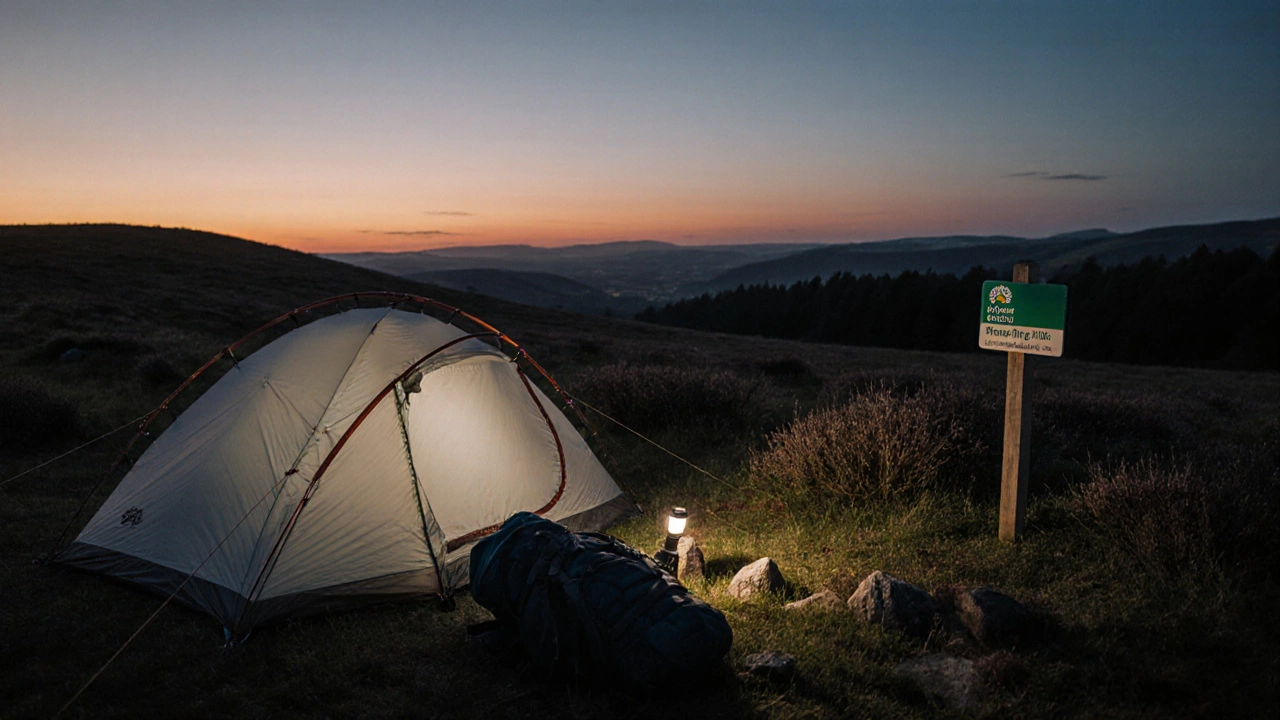UK Wild Camping: What You Need to Know
If you love waking up to fresh air and open skies, wild camping in the UK can feel like freedom. But the rules are different across the country, and breaking them can cost you a fine or a forced move. This guide gives you the straight facts, so you can plan a night outdoors without headaches.
Legal basics: where you can and can't camp
In England and Wales, most private land is off‑limits without permission. That means you can't just pitch a tent on a farmer's field or a city park. Scotland is the exception – the Scottish Outdoor Access Code lets you camp on most uncultivated land as long as you follow the "responsible camping" rules.
Coastal areas have extra rules. Some beaches are covered by local bylaws that ban overnight stays, especially during high season. Check the council website or signs on the beach before you set up.
Practical tips for a hassle‑free night
Pick spots where you aren't likely to be disturbed. Look for a flat area away from paths, but not too far from a water source. Use a lightweight tarp or a small tent that blends with the surroundings – this reduces the chance of a landowner calling the police.
Leave no trace is the golden rule. Pack out all rubbish, bury any toilet waste at least 15cm deep, and avoid building a fire unless the area explicitly allows it. A portable stove is safer and cleaner.
When camping on a beach, check tide times. Set up above the high‑tide line and be ready to move if the water rises. Keep your gear sand‑proof by using zip‑lock bags.
If you want to camp in a public park, the rules vary. Some parks let you pitch a tent for a few hours, others ban it completely. Look for signs that say "camping prohibited" or ask a park ranger.
For motorhome travelers, many sites let you park overnight on public land under the "overnight stay" allowance, usually up to 24 hours. Make sure the vehicle is level, plug into a safe power source if available, and stay quiet.
Gear checklist: a sturdy tent or awning, sleeping bag rated for the season, headlamp, waterproof duffel, map or GPS, and a small first‑aid kit. A portable charger can keep your phone alive for emergencies.
Respect locals. If you hear someone nearby, keep your lights low and noise down. A friendly smile and a quick explanation can go a long way if you’re asked to move.
Finally, plan an exit strategy. Know the nearest town, public transport, or a legal campsite you can head to if the landowner asks you to leave. Having a backup spot saved on your phone saves stress.
With these basics, you can enjoy wild camping across the UK while staying on the right side of the law. Pack light, be courteous, and let the night sky be your roof.
Is Wild Camping Safe in the UK? Practical Safety Guide
Learn how safe wild camping in the UK can be with legal tips, safety gear, weather prep, wildlife handling, and a quick checklist for a worry‑free adventure.
Is It Legal to Sleep in Your Car in the UK?
Sleeping in your car in the UK is a topic of interest for many travelers seeking flexibility and affordability. However, legalities can vary greatly depending on where you park. It's crucial to understand the rules in different regions, private property considerations, and the potential risks involved. Whether it's a quick nap or an overnight stay, here's what you need to know.

